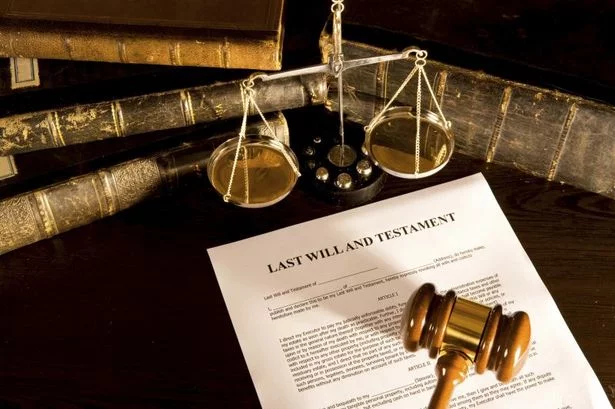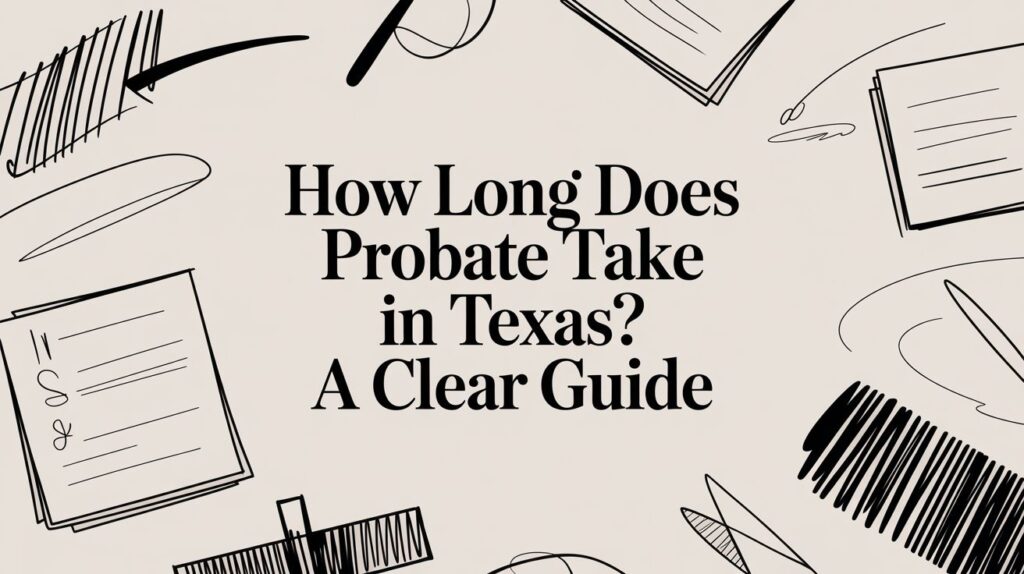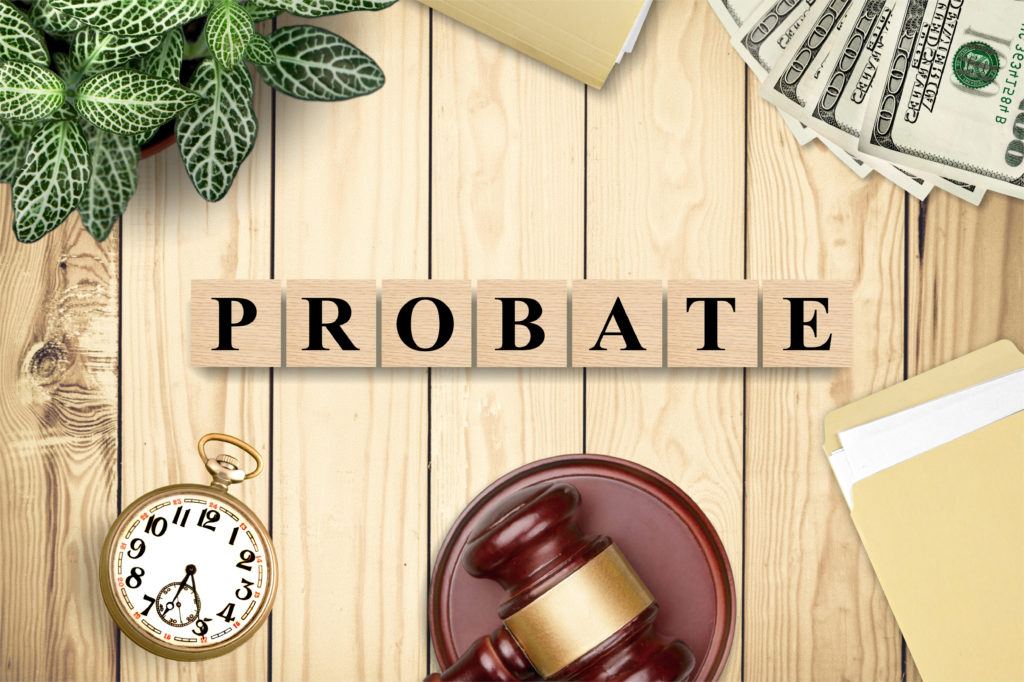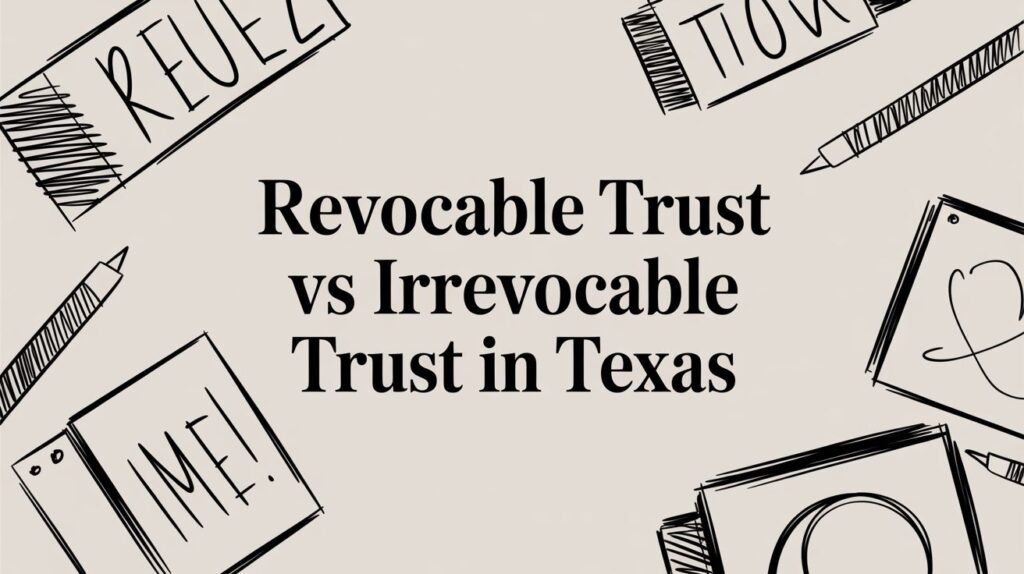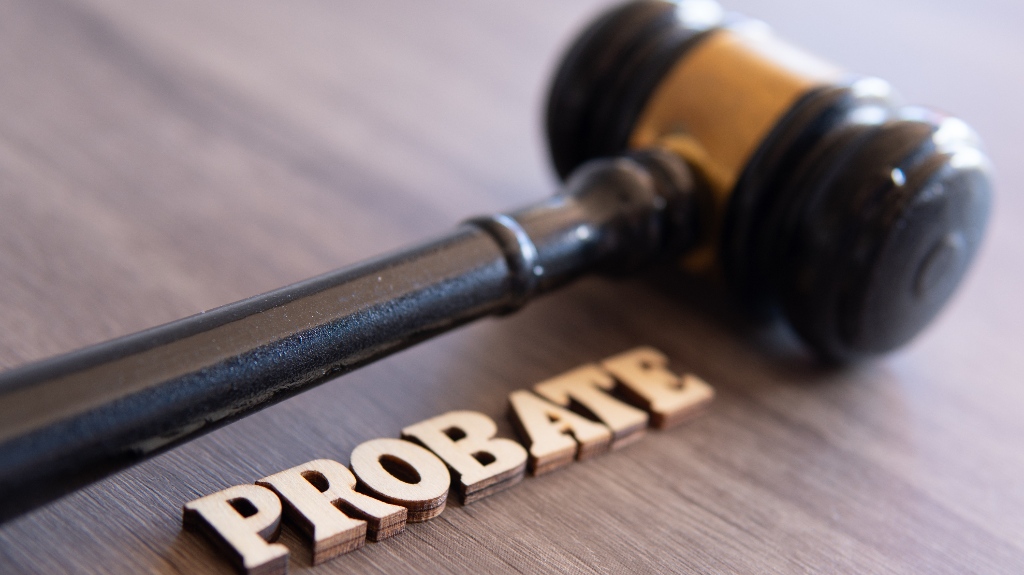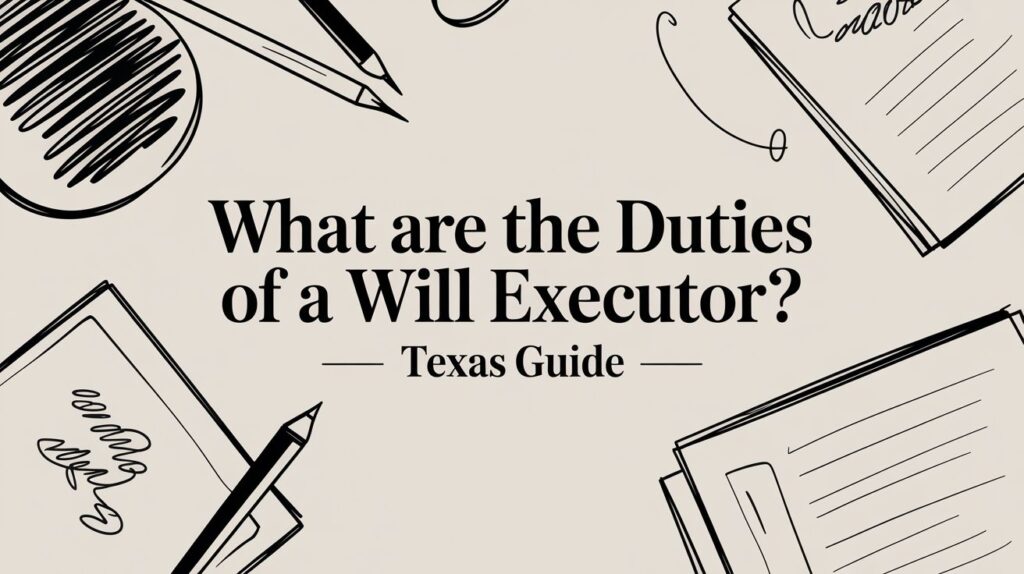If you’re settling a loved one’s estate or preparing your own, one of the big financial questions you’re likely asking is this: what are the factors that determine will probate cost in Texas? It’s a reasonable question—and one that can’t be answered with a flat number. In reality, probate costs in Texas vary widely depending on the estate’s complexity, the types of assets involved, how organized everything is, and whether the heirs get along.
In this detailed and practical guide, we’ll explore the key factors that influence the total cost of probating a will in Texas. Along the way, we’ll use real-life examples to illustrate how one estate might cost a few thousand dollars to probate—while another, with similar value on paper, ends up costing five times as much. Whether you’re an executor, heir, or just someone thinking ahead, this breakdown will help you plan more effectively.

Why Understanding Probate Costs in Texas Matters
Probate can feel like a maze of paperwork, deadlines, and unexpected expenses. That’s especially true if you’re dealing with it while also mourning someone close. By understanding the factors that determine will probate cost in Texas, you’ll be better prepared to manage the process—not just emotionally but financially too.
More importantly, knowing the cost drivers can help you avoid unnecessary fees, hire the right professionals, and make strategic decisions that benefit the estate and the people inheriting from it.
Real-Life Story: Michael’s $12,000 Surprise
Michael, a 45-year-old teacher from El Paso, was named executor of his uncle’s estate. The will was straightforward, and the estate’s total value was around $300,000, mostly in real estate and bank accounts.
He expected a relatively simple process—but ended up spending over $12,000 in probate-related costs. Why? There were delays in obtaining property appraisals, disputes among heirs, and confusion about which assets were community property. Had Michael known more about the factors that determine will probate cost in Texas, he could have avoided some of those issues upfront.
Factor 1: Type of Probate Administration
In Texas, the probate process can take several forms. The type you choose—or are required to use—can significantly affect the overall cost.
Independent Administration
This is the most common and cost-effective form of probate in Texas. If the will names an independent executor and there’s no contest, the executor can handle many duties without court approval. Legal fees are lower, and the process is faster.
Dependent Administration
In cases where there is no will or the will doesn’t name an independent executor, the court may require dependent administration. Every major action (e.g., selling property or paying debts) requires court approval, which leads to:
- Higher attorney fees
- More court filing costs
- Longer timelines
- Bond requirements
Choosing the right type of administration is one of the first major factors that determine will probate cost in Texas.
Factor 2: Size and Complexity of the Estate
It should come as no surprise that larger and more complicated estates are more expensive to probate.
Estate Size
- Estates under $75,000 may qualify for a Small Estate Affidavit, avoiding full probate.
- Larger estates may involve real property, investment accounts, and business interests—all of which require more time and documentation.
Estate Complexity
Complex estates usually include:
- Multiple heirs in different locations
- Trusts or business ownership
- Investment portfolios
- Blended family dynamics
- Out-of-state property

Even a modest estate becomes complicated if records are missing, the will is vague, or the heirs don’t get along. The more complexity, the more professional help you’ll need—which increases cost.
Factor 3: Attorney Involvement and Legal Fees
Most executors hire an attorney to guide them through probate. While not legally required in Texas for independent administrations, it’s often essential—especially if you’re unfamiliar with legal proceedings.
Common Attorney Billing Methods
- Hourly fees ($200–$500/hour)
- Flat fees for standard independent probate ($2,000–$5,000)
- Retainers plus hourly billing for contested or complex cases
The level of attorney involvement is one of the biggest factors that determine will probate cost in Texas, and it’s usually worth the expense—especially if it prevents legal errors or delays.
Real-Life Story: Linda’s Cost-Saving Legal Strategy
Linda, a Houston CPA, served as executor of her father’s estate. With her financial background, she handled most of the paperwork and only consulted an attorney for filings and court appearances. Her legal bill was just under $2,500—significantly lower than average.
By understanding when she needed legal advice and when she didn’t, Linda controlled costs without compromising accuracy. Her story shows how strategic attorney use can influence the will probate cost in Texas.
Factor 4: Executor or Administrator Fees
In Texas, executors are entitled to a statutory commission of 5% of all money received and paid out by the estate. This doesn’t include the value of real estate unless it’s sold during probate.
Example:
- Estate collects $400,000 and pays $300,000 in expenses
- Executor can claim 5% of $700,000 = $35,000
While many family members waive the fee (especially if they’re also inheriting), professional administrators or attorneys serving as executors will typically collect it.
Executor compensation is another variable in the total cost of will probate in Texas, especially for large estates or if administration takes years to complete.
Factor 5: Required Bond (If Not Waived)
If the will does not explicitly waive bond—or if there is no will—the court may require the executor or administrator to post a bond.
Bond Costs:
- Typically 1%–2% of the bond amount per year
- A $300,000 bond may cost $3,000/year
Bonds are designed to protect heirs from executor misconduct, but they also add another cost layer—especially if the estate is tied up for an extended period. Some courts will waive bond if all heirs agree in writing, which can save thousands.
Factor 6: Appraisal and Valuation Costs
If the estate includes:
- Real estate
- Vehicles
- Businesses
- Valuable personal property (e.g., jewelry, antiques)
…you may need to hire an appraiser to determine market value for tax and distribution purposes.
Typical Costs:
- Real estate appraisals: $400–$800 per property
- Business valuations: $2,000–$10,000
- Personal property appraisals: $100–$500+
These appraisals may not be required in every case, but they’re common enough to be a major factor in will probate cost in Texas.
Factor 7: Court Filing Fees and Related Expenses
Texas probate courts charge various filing fees, depending on the type of case and county.
Typical Filing Fees:
- Probate application: $250–$400
- Letters testamentary or administration: $30–$60
- Heirship determinations: Additional $100–$200
- Publication notices: $75–$300
While individually small, these costs add up—especially in dependent administrations with more court oversight.
Factor 8: Disputes Among Heirs or Beneficiaries
Nothing drives up probate costs like a family feud. Will contests, claims of undue influence, or challenges to the executor’s actions can double or triple the cost of probate.
Added Costs from Disputes:
- More court hearings
- Additional attorney fees
- Possible mediator or guardian ad litem fees
- Delays that stretch probate timelines

Disputes are often unpredictable but can be minimized through early communication, clear estate planning, and transparency throughout the probate process.
Factor 9: Tax Preparation and CPA Fees
Even though Texas doesn’t have a state estate tax, you may need to file:
- Final personal income taxes for the decedent
- Estate income tax (Form 1041)
- Federal estate tax (for large estates)
Hiring a CPA can cost between $300 and $2,000 depending on estate complexity. Missing tax filings can lead to penalties, so this is another crucial piece of the probate cost puzzle in Texas.
Real-Life Story: Doug’s Tax Mistake
Doug, the executor of his father’s estate in Travis County, forgot to file the final tax return. The IRS imposed late penalties, and he had to hire a CPA to fix the problem—costing the estate over $3,000.
Had Doug budgeted for CPA help, he could’ve avoided the fine and saved time. His experience highlights the importance of including tax services in your estimate of will probate cost in Texas.
How to Reduce Probate Costs in Texas: Smart Planning Tips
You can’t eliminate every cost, but you can significantly reduce them by planning ahead.
1. Create a Clear, Legally Valid Will
- Name an independent executor
- Waive bond in the will
- Be specific about asset distribution
2. Organize Records
- Maintain clear lists of accounts, property, and passwords
- Reduce the time attorneys and executors spend gathering information
3. Use Non-Probate Transfers
- Beneficiary designations
- Transfer-on-death deeds
- Joint ownership
4. Communicate with Heirs
- Prevent misunderstandings and disputes
- Keep beneficiaries informed of timelines and estate progress

Proactive planning makes the entire probate process faster, cheaper, and less emotionally draining.
Final Thoughts: Key Factors That Determine Texas Will Probate Costs
As you’ve seen, there’s no single answer to the question, what are the factors that determine will probate cost in Texas? Instead, it depends on a mix of legal requirements, estate complexity, professional involvement, and the choices made before and during probate.
Whether you’re an executor trying to manage costs or a family member wondering what to expect, knowledge is your best defense against surprises. And when it comes to probate, avoiding surprises is the fastest way to save money, protect relationships, and honor a loved one’s legacy with care.



